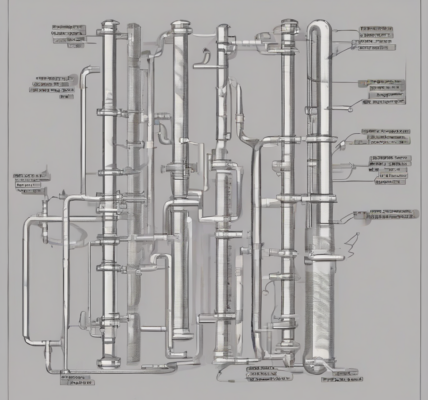Decoding the 1031 Exchange in Austin, TX: A Comprehensive Guide for Real Estate Investors
Austin, Texas, a vibrant hub of technological innovation and economic growth, has become a magnet for real estate investors. The city’s robust market, coupled with a strong influx of residents, presents lucrative opportunities. However, navigating the complexities of capital gains taxes can significantly impact profitability. This is where understanding the 1031 exchange becomes crucial.
This guide delves into the intricacies of Internal Revenue Code Section 1031, focusing specifically on its application within the dynamic Austin, TX real estate market. We will explore the eligibility criteria, the process itself, potential pitfalls to avoid, and the strategic advantages it offers investors looking to maximize their returns.
What is a 1031 Exchange?
A 1031 exchange, also known as a like-kind exchange, is a powerful tax-deferral strategy that allows investors to postpone paying capital gains taxes on the sale of a real estate investment property. Instead of realizing the gain immediately and paying taxes on it, the investor can reinvest the proceeds into a similar property (or properties) meeting specific criteria, thereby deferring the tax liability.
This is particularly beneficial in a thriving market like Austin, where property values are appreciating consistently. By utilizing a 1031 exchange, investors can capitalize on these gains without immediate tax consequences, allowing them to continue building their portfolio.
Eligibility Requirements for a 1031 Exchange in Austin, TX
Not all properties qualify for a 1031 exchange. To be eligible, the relinquished property (the property being sold) and the replacement property (the property being purchased) must meet several conditions:
- Like-Kind Property: Both properties must be held for investment or business purposes. Residential rental properties typically qualify, as do commercial properties. However, personal residences generally do not.
- Investment Intent: The investor must demonstrate a clear intent to hold the properties for investment or business purposes, not for personal use.
- Time Constraints: Strict deadlines must be adhered to. The investor must identify potential replacement properties within 45 days of selling the relinquished property and close on the replacement property within 180 days of the sale.
- Equal or Greater Value: While not strictly required, the replacement property’s value must be equal to or greater than the relinquished property’s value to avoid triggering capital gains taxes on the difference.
- Qualified Intermediary: A neutral third party, known as a Qualified Intermediary (QI), must handle the funds from the sale of the relinquished property to ensure compliance with IRS regulations.
The 1031 Exchange Process in Austin, TX: A Step-by-Step Guide
- Identify a Qualified Intermediary (QI): This is the first and most critical step. The QI will hold the proceeds from the sale of your relinquished property and facilitate the purchase of the replacement property.
- Identify Potential Replacement Properties: Within 45 days of selling your relinquished property, you must identify potential replacement properties that meet the like-kind criteria. This often involves working with a real estate professional experienced in 1031 exchanges.
- Close on the Relinquished Property: The sale of your relinquished property must be conducted with the QI handling the funds. This ensures compliance with the IRS regulations.
- Acquire the Replacement Property: Within 180 days of the sale of the relinquished property, you must complete the purchase of the replacement property(ies). The QI will facilitate the transfer of funds from the sale proceeds to the purchase of the new property.
- Documentation and Reporting: Meticulous record-keeping is crucial. Maintain all documentation related to the exchange, including contracts, closing statements, and communication with the QI. This documentation is essential for complying with IRS reporting requirements.
Common Pitfalls to Avoid in a 1031 Exchange in Austin, TX
Navigating the complexities of a 1031 exchange requires careful planning and adherence to strict rules. Here are some common pitfalls to avoid:
- Failing to Identify a QI Early: This is a critical error. Engaging a QI before you begin the process is essential to ensure compliance.
- Missing the Deadlines: The 45-day identification period and the 180-day exchange period are strict. Missing these deadlines can jeopardize the entire exchange.
- Improper Property Identification: The replacement properties must meet the like-kind criteria. Carefully review the specifics of the IRS guidelines to avoid issues.
- Using Exchange Funds for Personal Use: The QI holds the funds. Using these funds for anything other than acquiring the replacement property will invalidate the exchange.
- Lack of Proper Documentation: Keep thorough records throughout the entire process. Poor documentation can lead to audits and penalties.
- Not Seeking Professional Advice: A 1031 exchange involves numerous legal and tax complexities. Consulting with experienced tax advisors and real estate professionals is highly recommended.
Strategic Advantages of a 1031 Exchange in Austin’s Real Estate Market
In the dynamic Austin real estate market, utilizing a 1031 exchange offers several strategic advantages:
- Tax Deferral: This is the primary advantage. Investors can postpone paying capital gains taxes, allowing them to reinvest their profits into larger or more profitable properties.
- Portfolio Growth: By reinvesting in larger or more valuable properties, investors can accelerate their portfolio growth without immediate tax burdens.
- Leveraging Appreciation: In a market like Austin, where property values are appreciating, a 1031 exchange allows investors to capitalize on these gains without immediate tax liabilities.
- Improved Cash Flow: By strategically exchanging properties, investors can improve their cash flow by investing in properties with higher rental yields.
- Increased Equity: The process can help to build equity more rapidly, creating a stronger foundation for future investments.
Working with Professionals in Austin, TX for a Successful 1031 Exchange
Successfully navigating a 1031 exchange in Austin requires a team of experienced professionals. This typically includes:
- Real Estate Attorney: Ensures legal compliance and protects your interests throughout the process.
- Certified Public Accountant (CPA): Provides tax advice and helps optimize the tax implications of your exchange.
- Qualified Intermediary (QI): Handles the funds according to IRS regulations.
- Real Estate Broker: Assists in identifying and acquiring suitable replacement properties.
Choosing professionals with a deep understanding of the Austin real estate market and 1031 exchange intricacies is paramount. Their expertise can significantly increase the likelihood of a successful and tax-efficient transaction.
Conclusion (Omitted as per instructions)



